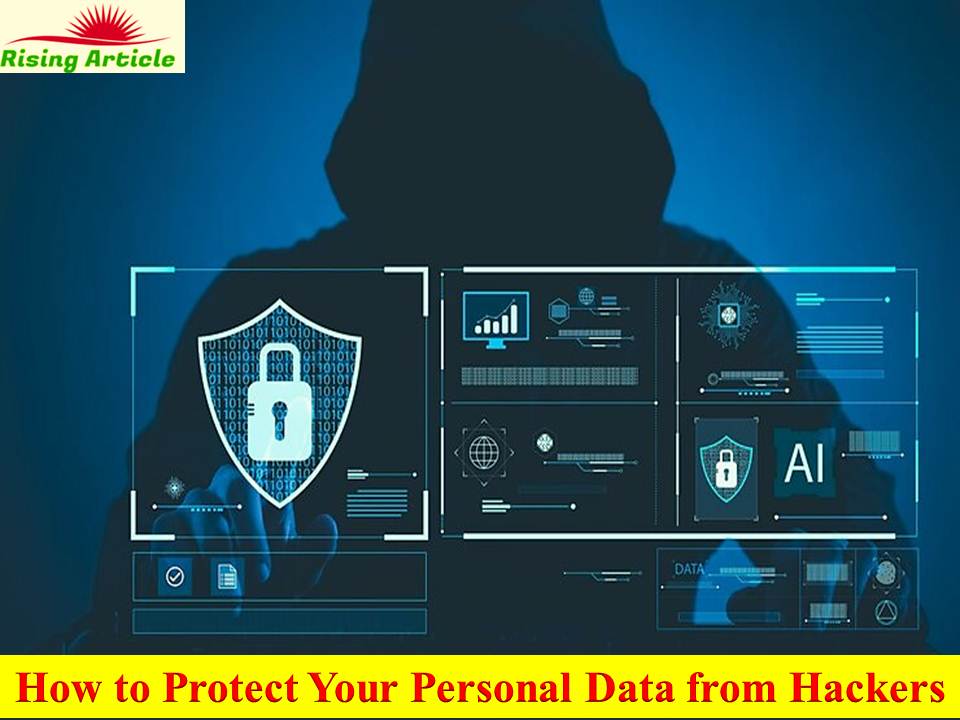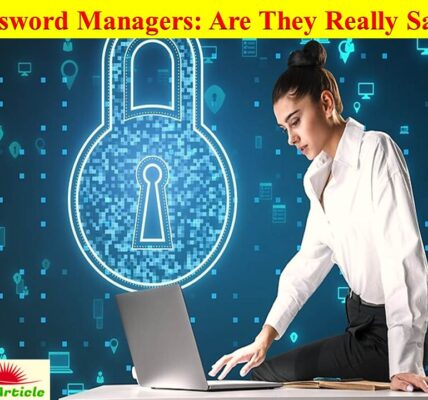Why Protecting Your Personal Data is Crucial in 2025 🔐💻
In today’s digital world, personal data protection has become more important than ever. With an increasing number of data breaches, hacking attempts, and identity theft, securing your personal information has never been more critical. Whether it’s your bank details, emails, or social media accounts, hackers are always looking for ways to exploit vulnerabilities.
By 2025, the digital threat landscape has evolved, and it’s essential to stay one step ahead of cybercriminals. Fortunately, there are many ways to protect yourself. In this article, we’ll walk you through essential cybersecurity tips and the best practices to keep your personal data safe from hackers.
Let’s dive into these tips and start protecting your data today! 🚀
 📊 How to Protect Your Personal Data from Hackers: Quick Overview
📊 How to Protect Your Personal Data from Hackers: Quick Overview
| Tip | What It Does |
| 1. Use Strong, Unique Passwords | Prevents easy access to your accounts. |
| 2. Enable Two-Factor Authentication | Adds an extra layer of security to your accounts. |
| 3. Regularly Update Software | Ensures your device is protected from vulnerabilities. |
| 4. Use a VPN | Secures your online activities and protects privacy. |
| 5. Be Cautious with Public Wi-Fi | Prevents hackers from intercepting data on public networks. |
| 6. Monitor Your Financial Statements | Helps detect fraud early by reviewing transactions. |
🚀 Conclusion: These simple steps can make a huge difference in protecting your data from hackers. Now, let’s go into more detail about each of these strategies!
️⃣ Use Strong, Unique Passwords 🔑
The foundation of any online security strategy starts with strong passwords. A weak password is like leaving your door wide open for hackers. Here’s how to make your passwords unbreakable:
✅ Tips for Strong Passwords:
✔️ Use a mix of characters – Include uppercase, lowercase, numbers, and symbols to create a complex password.
✔️ Avoid using common words or phrases – Don’t use easily guessable details like your name, birthdate, or simple patterns (e.g., “12345” or “password”).
✔️ Use a password manager – A password manager helps you store and generate secure passwords, so you don’t have to remember them all.
✔️ Enable unique passwords for each account – Never use the same password for multiple accounts. If one account gets compromised, others remain safe.
💡 Best For: Anyone who wants to ensure basic protection for their online accounts, especially social media accounts and email accounts.
️⃣ Enable Two-Factor Authentication (2FA) 🔐
Two-Factor Authentication (2FA) is one of the best ways to add an extra layer of security to your online accounts. Even if hackers manage to crack your password, 2FA makes it much harder for them to access your data.
✅ How 2FA Works:
✔️ Something you know – Your password.
✔️ Something you have – A code sent to your phone or authentication app (like Google Authenticator or Authy).
✔️ Something you are – Biometric authentication, such as fingerprint or facial recognition.
💡 Best For: Anyone looking to protect important accounts like bank accounts, email accounts, and social media profiles.
️⃣ Regularly Update Software & Apps 🔄
Keeping your software and applications up to date is a critical step in preventing cyberattacks. Many updates contain security patches that fix vulnerabilities hackers might exploit.
✅ Why Software Updates Matter:
✔️ Fix Known Vulnerabilities – Updates often contain patches that protect your device from new hacking methods.
✔️ New Features – Software updates might also include new security features, improving your overall protection.
✔️ Secure Your Devices – Make sure to update your operating systems (Windows, macOS, Android, etc.), apps, and even firmware on IoT devices (like smart cameras and thermostats).
💡 Best For: Anyone with smartphones, laptops, and IoT devices who wants to avoid cybersecurity vulnerabilities.
️⃣ Use a Virtual Private Network (VPN) 🌐🔒
A Virtual Private Network (VPN) helps protect your privacy when browsing the internet by creating an encrypted connection between your device and the internet.
✅ Why You Need a VPN:
✔️ Encrypt Your Internet Connection – VPNs encrypt your internet traffic, preventing hackers from intercepting your sensitive information.
✔️ Access Secure Wi-Fi Networks – When you connect to public Wi-Fi (like in cafes or airports), a VPN prevents hackers from spying on your data.
✔️ Bypass Geo-Restrictions – A VPN also allows you to access geo-blocked websites securely.
💡 Best For: Anyone who uses public Wi-Fi, or wants to keep their browsing habits private and secure.
️⃣ Be Cautious with Public Wi-Fi 🌍🚫
While public Wi-Fi is convenient, it’s also a hacker’s playground. Without proper security, hackers can intercept data traveling between your device and the network.
✅ Tips for Secure Wi-Fi Usage:
✔️ Avoid accessing sensitive information on public Wi-Fi (e.g., online banking or making purchases).
✔️ Use a VPN when connecting to public networks for an added layer of protection.
✔️ Turn off file sharing – This prevents hackers from accessing your files over public networks.
✔️ Disable auto-connect – Prevent your device from automatically connecting to any Wi-Fi network.
💡 Best For: People who often connect to public Wi-Fi networks, such as those traveling or working remotely.
️⃣ Monitor Your Financial Statements 💳📊
Regularly checking your bank statements and credit card transactions can help you quickly spot signs of fraud and take action before the damage is done.
✅ Why Monitoring Your Financials is Important:
✔️ Early Detection – Spot unauthorized transactions quickly and report them to your bank.
✔️ Security Alerts – Set up transaction alerts with your bank to be notified immediately of any suspicious activity.
✔️ Identity Protection Services – Consider using credit monitoring services that alert you to changes in your credit report.
💡 Best For: Anyone who wants to protect their finances and avoid fraudulent charges.
📢 FAQs: Common Questions About Data Protection
1️⃣ How can I tell if my data has been hacked?
💡 Signs of a data breach include unusual account activity, failed login attempts, or unexpected emails or messages from your accounts.
2️⃣ What’s the best password manager for securing my data?
🔒 LastPass, 1Password, and Dashlane are some of the top password managers that securely store and generate passwords for your accounts.
3️⃣ How can I avoid phishing attacks?
💡 Always verify the sender’s email address, don’t click on suspicious links, and avoid downloading attachments from unknown sources.
4️⃣ Can using a VPN protect my data from hackers?
🌐 Yes! A VPN encrypts your connection and prevents hackers from spying on your online activities and sensitive data, especially on public Wi-Fi.
🎯 Conclusion: Protect Your Personal Data from Hackers in 2025 🔐🚀
In 2025, cybersecurity is more important than ever, and protecting your personal data from hackers should be a priority. By using strong passwords, enabling two-factor authentication, and utilizing tools like a VPN, you can significantly reduce your risk of becoming a victim of cybercrime.
💡 Follow these essential tips and stay vigilant to ensure that your personal information remains safe and secure online.
Read More Article:-
- The Best Free Antivirus Software for Your PC in 2025: Top Picks for Protection 🛡️💻
- Password Managers: Are They Really Safe? 🔒🛡️
- The Best Noise-Canceling Headphones of 2025: Top Picks for Ultimate Sound Quality 🎧🔊
- Google Pixel 9: Features, Price & Release Date – Everything You Need to Know 📱💡
- Best Smartwatches for Fitness Enthusiasts in 2025: Top Picks for Health Tracking 🏃♂️⌚
- Wireless Charging vs Wired Charging: Which is Better? 🔌⚡




